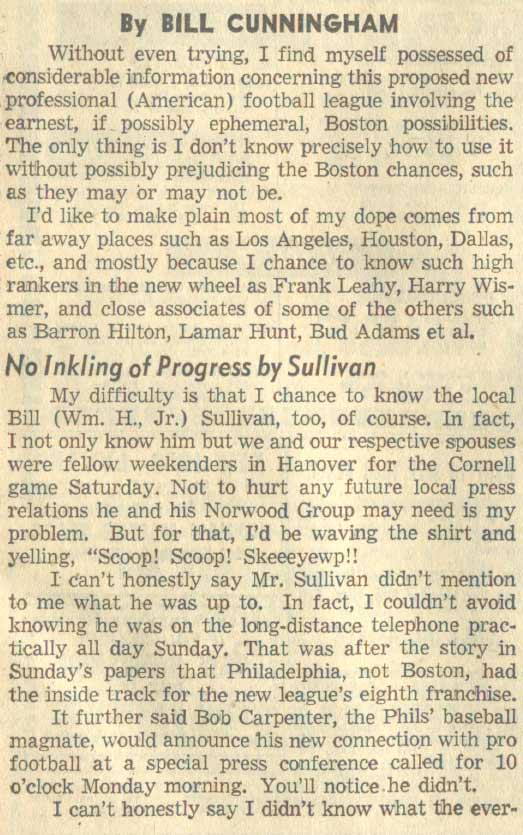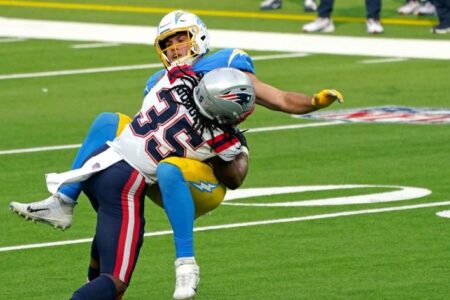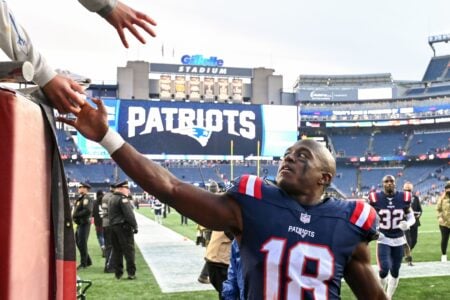Okay, let's straighten all this out.

The AFL was originally started with
six teams: Dallas, Houston, New York, Los Angeles, Minneapolis and Denver. Later, the owners decided to add two more teams - the seventh was the franchise awarded to Ralph Wilson which ultimately became the Buffalo Bills (though as I mentioned, he originally wanted to put his team in Detroit); the Patriots were eighth and, for a few months, the final one.
As AZ pointed out, the NFL was tired of competing with rival leagues and tried to put the newest one out of business before it played a down. Bud Adams has said George Halas personally invited him to become an NFL owner as long as he would leave the AFL; Adams refused because he said he wouldn't go back on his word (though he would do so a lot with the city of Houston once the Oilers got established, but that's another story.) The NFL was, however, able to convince the ownership of the Minneapolis franchise to pull out of the AFL in early 1960 and join the NFL instead (though the club didn't actually start play until 1961.) Angered but undeterred, the AFL simply went to the next city on its list, Oakland - and thus the Raiders became the last of the original eight franchises.
Although the NFL told Lamar Hunt and Bud Adams that they weren't interested in expanding, they really were, but they already had potential owners in mind. Minneapolis and Dallas were two markets they were strongly considering (although they also lied about this to Hunt, saying that after the 1952 Dallas Texans went bankrupt they weren't about to put another team in Dallas.) They put together the Cowboys franchise relatively quickly, and (like the Raiders) their somewhat last-minute formation resulted in a club that was terrible on the field for its first few years.
This is the irony of the three-year rivalry between Lamar Hunt's Texans and the Cowboys - the Texans were a much better team on the field, and Hunt signed several players from Texas universities to boost local support. Nonetheless, the Cowboys were much more popular and not even winning the AFL championship against in-state rival Houston could put the Texans on top. In fact the 1962 championship game was the last game the club played as the Texans; during the following off-season Hunt reluctantly agreed to move the team to Kansas City.
Also ironic is that Paul Brown joined the AFL solely to get back into the NFL. He told the owners of both leagues flat-out during the merger negotiations that he was only going to start up his Cincinnati team if they hammered out a merger agreement and the team would eventually be part of the NFL.
Finally here's a quick list of the AFL teams:
1960:
Dallas Texans (became Kansas City Chiefs in 1963)
Houston Oilers (moved to Tennessee in 1997, became Tennessee Titans in 1999)
New York Titans (renamed Jets in 1963)
Los Angeles Chargers (moved to San Diego in 1961)
Denver Broncos
Buffalo Bills
Boston Patriots (renamed New England Patriots in 1971)
Oakland Raiders (moved to Los Angeles from 1982-1994)
1966:
Miami Dolphins
1968:
Cincinnati Bengals




















